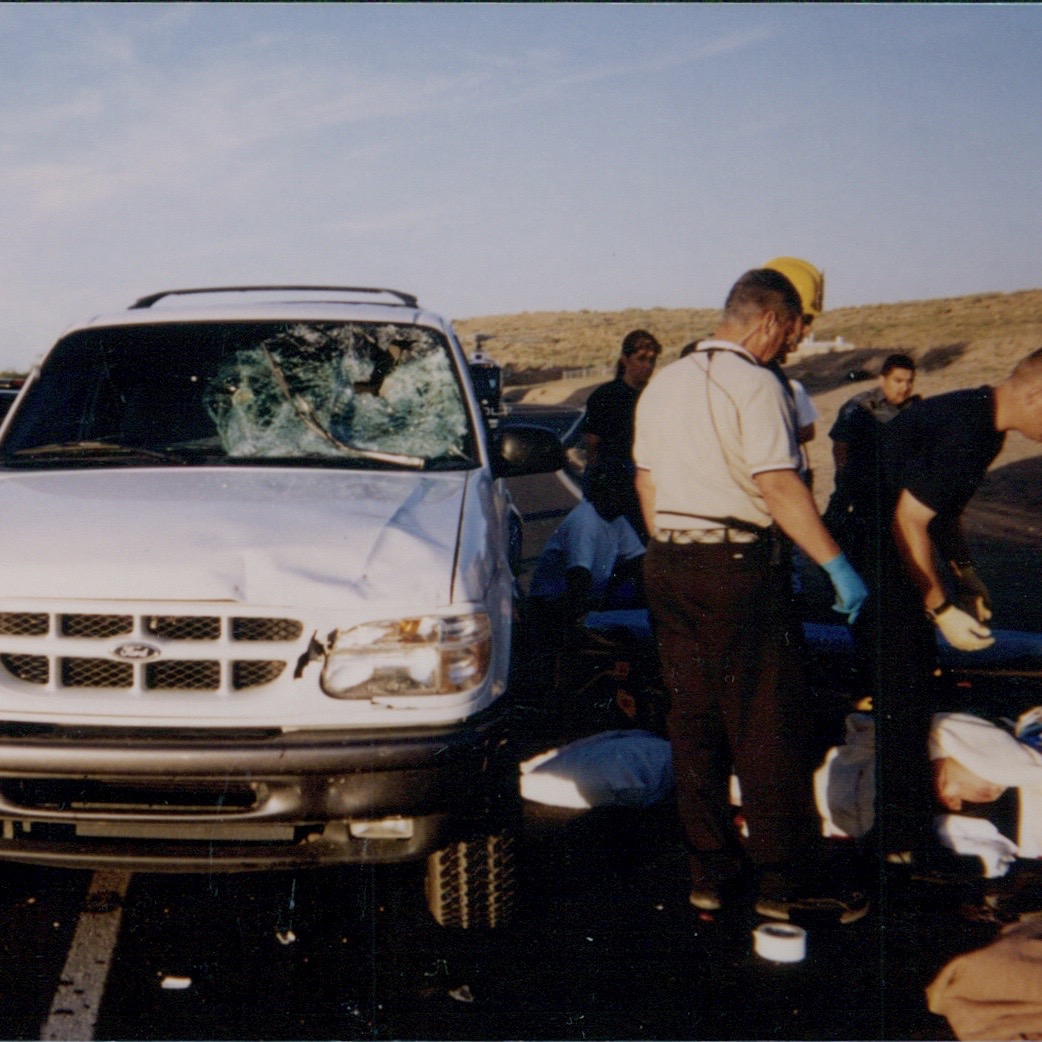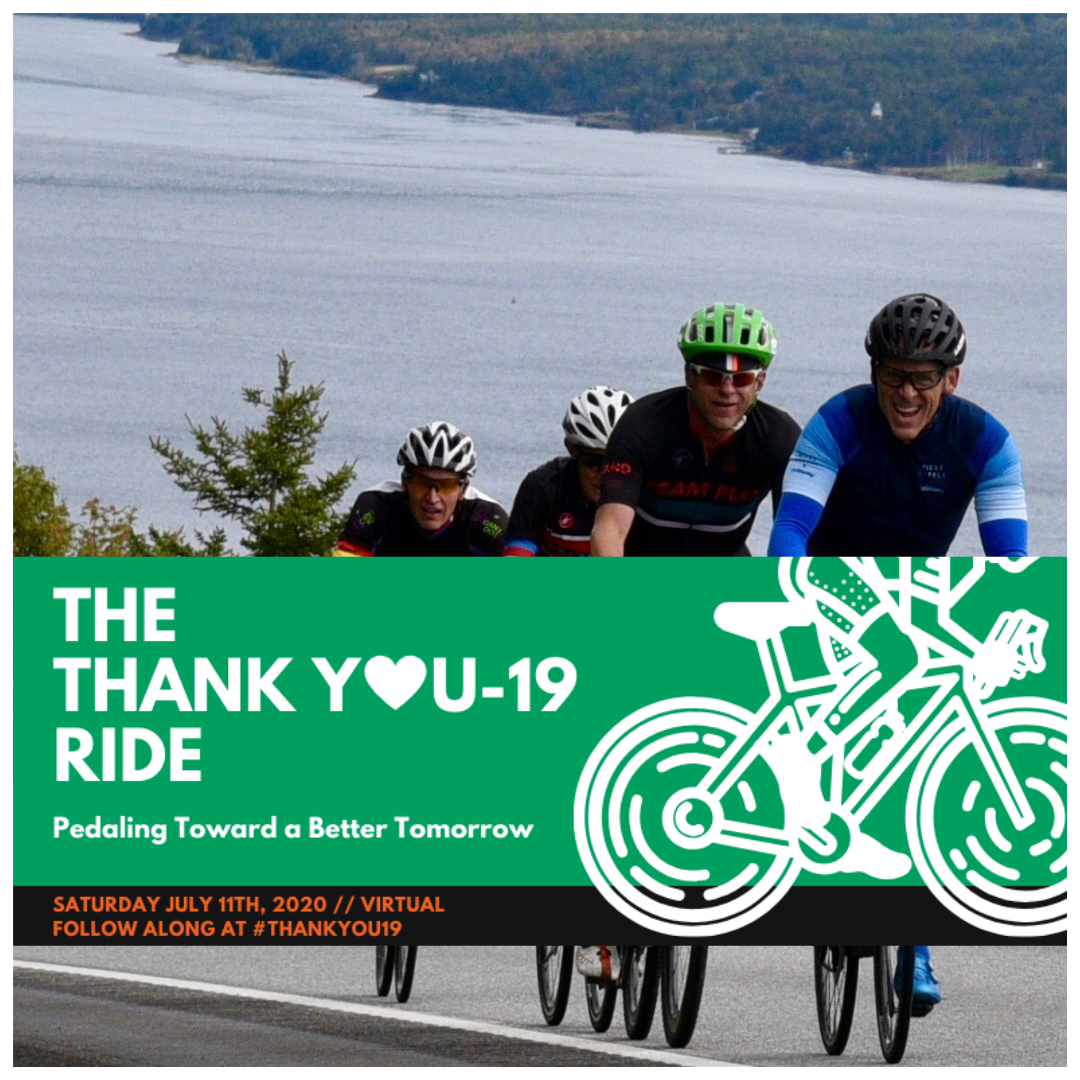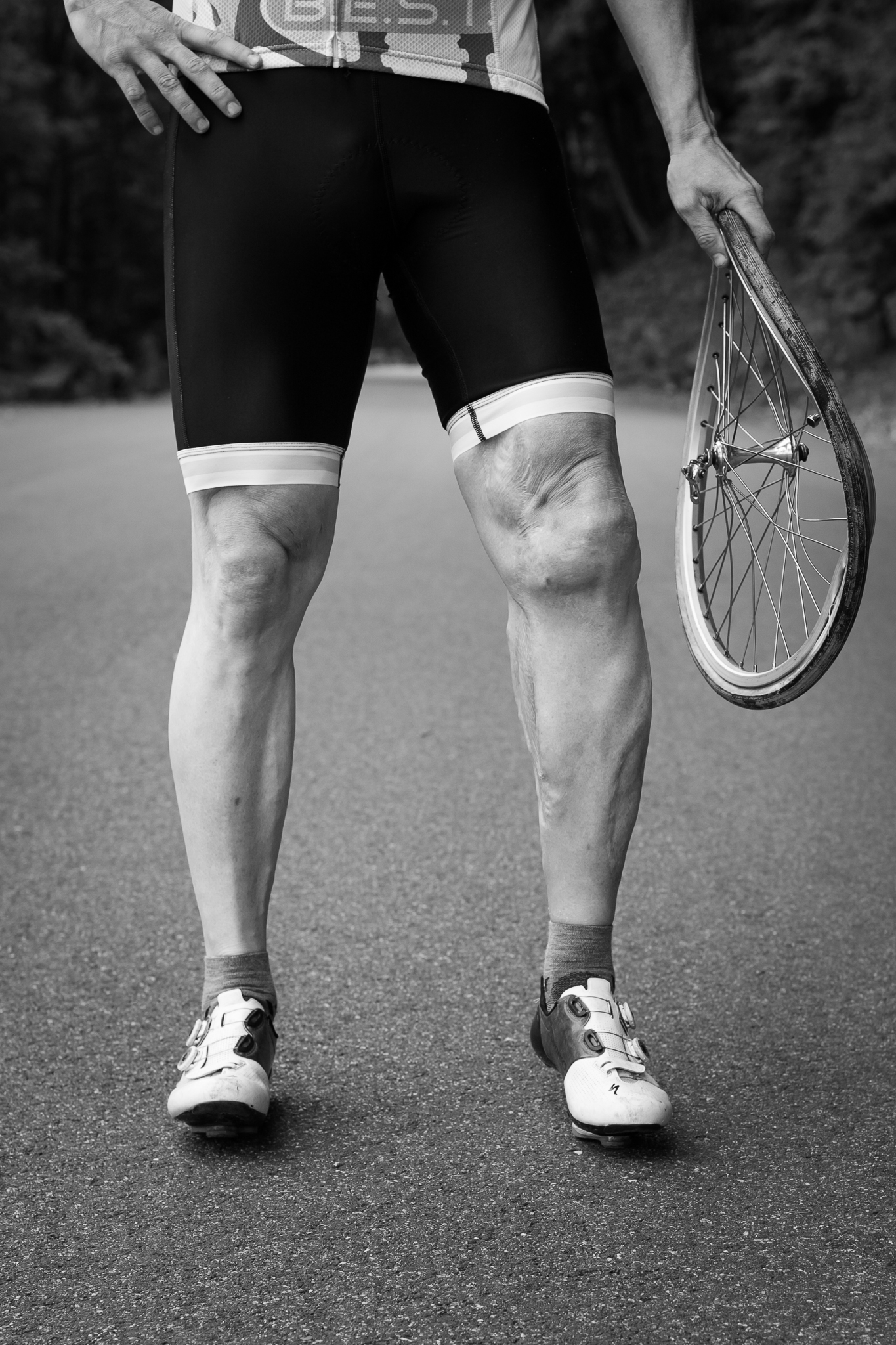“How’s my bike?
It’s a question that other cyclists can appreciate, and it was the first one I asked my first responders when I regained consciousness.
It was the morning of July 11, 2001. I was in New Mexico for a company meeting and decided to do a pre-work ride before dawn. The sun was rising, the wind was in my face, and I felt alive.
As I rounded a bend in the road, I suddenly faced a white SUV coming right at me. The driver had crossed into my lane, traveling about 40 mph.
He hit me head-on.
I laid in a heap on the cool, desert asphalt, unable to move. After several minutes, I slowly regained consciousness and realized several emergency medical technicians were working on me. And based on their actions, I knew my condition was critical.

As I waited for the medevac, I remember willing myself not to fall asleep so I could stay in control – as crazy as that sounds. I thought if I lost consciousness, I would never wake up. At the moment, I promised myself that if I lived, my life would be different. As they put me on the helicopter to fly me to Albuquerque, I told myself that I would stop chasing happiness.
After I came out of the intensive care unit, I discovered more about the accident and the seriousness of my injuries. The doctors told my wife they weren’t sure how I survived. My medical team shared that I would face lifetime limitations and dependency.
And because I believe we go where our eyes go, I became angry, worried, and fearful about my future. I was afraid that I had lost my identity and freedom, feelings I had discovered many years before after my first real bike ride on my Schwinn Pixie.
During one of my lower moments of feeling like a victim, a mentor shared that “all the events in your life are neutral until you label them. Nothing has meaning into you give it meaning, Michael.”
His pep talk was a spark. In time, I began a mindfulness and gratitude practice and tapped into resilience to help shift my eyes so I could go in a different direction. I later realized that my accident happened for me, not to me.
Today I feel that COVID – 19 is happening for us, not to us even with its suffering and loss. It’s shining a light on past scars and today’s fissures so we can come together and heal.
I know that I’m here today because of the support of others during my crisis 19 years ago, and it all started with my first responders. Without them, my story would be just another statistic – I owe my life to them.
To celebrate life and those who support others, I will be riding 19 hours on July 11, 2020, for 19 charities, including #FirstRespondersFirst, an initiative of Harvard T.H. Chan School of Public Health, Thrive Global, and the CAA Foundation, which takes a whole human approach to supporting first responder healthcare workers as they serve on the frontlines of the COVID-19 pandemic.
This virtual charity ride is called The Thank You – 19 Ride.
You can join me for a few miles or all 19 hours via the One Peloton or Go Zwift apps, and you can donate to #FirstRespondersFirst via this link: https://www.mightycause.com/team/Thankyou19firstresponders
The root word for courage is cor, which is Latin for heart. My first responders told me not to worry about my bike and focus on my breathing. That morning I was a stranger to them, but I felt their love as we do with our COVID first responders today.
We count on them when we are vulnerable, and they show us their love. Through The Thank You-19 Charity Ride, you can express your gratitude by giving and sharing this event with others today.
On July 11, 2001, I told myself life would be different – I would stop chasing happiness and just be, and it’s because of the support of others, like my first responders, that I’m thriving today.
This July 11, I hope you will join me in supporting others, like #FirstRespondersFirst, and helping others thrive so we can create a better tomorrow together.
Keep pedaling. Keep breathing. Keep loving.
Michael



